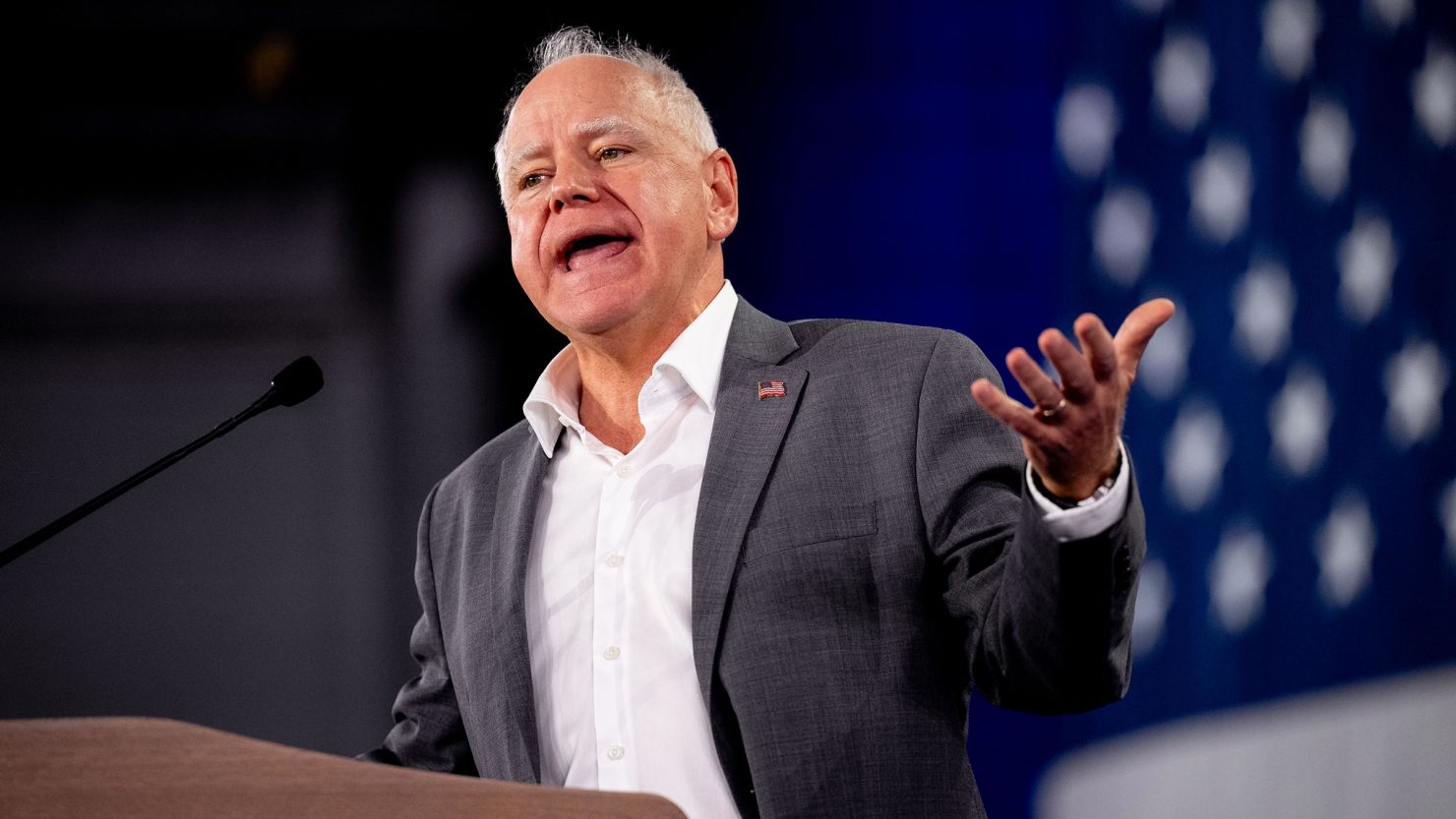November 1, 2024
Minnesota Governor Tim Walz, recently named as Vice President Kamala Harris’s running mate, is facing mounting scrutiny over his decades-long ties to China, a relationship underscored in a recently unearthed letter in which Walz lauds Minnesota’s longstanding connection with Chinese leaders. The letter, initially shared by the Minnesota International Chinese School in 2021 to celebrate its tenth anniversary, has resurfaced as a focal point in his candidacy.
In the letter, Walz emphasized Minnesota’s historic ties with China, celebrating “numerous senior Chinese leaders” who have visited the state. “Minnesota has promoted its connections with China,” Walz wrote, adding that these connections were “rapidly expanding” through education, trade, and investment opportunities.
However, Walz’s involvement with China extends far beyond this letter. A recent report from Fox News Digital noted that only days after his message to the Chinese School, Zhao Jian, the Chinese Consul General in Chicago, recorded a congratulatory message for the same school. This connection has raised questions about Walz’s relationship with the Chinese consulate, especially after the House Oversight Committee uncovered records of a meeting between Walz and Jian earlier this year discussing “China-U.S. relations and sub-national cooperation.” The Biden administration’s 2022 Director of National Intelligence report flagged consulates like Jian’s as active players in Chinese foreign influence operations in the U.S., further raising concerns about these interactions.
While Walz has touted his experience with China as a teacher and visitor, his extensive ties are raising questions as scrutiny builds around his vice-presidential bid. In a 1991 classroom discussion, Walz commented on the Chinese Communist system, saying it “means that everyone is the same, and everyone shares,” seemingly endorsing certain aspects of the communist structure. He even mentioned that under the Chinese government, “the doctor and the construction worker make the same” and that “food and housing” were provided equally. His remarks have since resurfaced, particularly among critics who question his stance on authoritarian governance models.
Adding to the controversy, Walz’s praise for his time in China has drawn concern. Reflecting on his visits, he once said, “No matter how long I live, I will never be treated that well again,” and recalled being “treated exceptionally well” during his stays. These statements have sparked a backlash from some who believe that a vice-presidential candidate should view China with greater caution, given the country’s history of human rights abuses and political oppression.
Walz’s ties have extended into Minnesota’s local government and business sectors. He has longstanding connections to a Minnesota-based medical research institute that has previously collaborated with a Chinese firm labeled a “Chinese military company” by the Pentagon. In 2014, Walz welcomed a Chinese delegation to the institute, including senior Communist Party members and Chinese officials with links to the Henan Cancer Institute, an organization reportedly led by party officials.
The unease surrounding Walz’s candidacy has only intensified following a Department of Homeland Security (DHS) warning. A DHS official voiced concerns over Harris’s selection of Walz, claiming that his presence on the ticket “feeds into what [the People’s Republic of China] has been doing here with him and local government.” According to Fox News, the official stated that Beijing could target Walz to influence U.S. policy, given his previous interactions and longstanding ties.
House Oversight Committee Chair James Comer issued a letter to DHS Secretary Alejandro Mayorkas this week, highlighting the DHS communications and warning of “the CCP’s influence operations as they related to Governor Walz.” Comer’s letter exemplifies Republican anxieties over potential foreign influence on U.S. leaders through strategic targeting of figures like Walz.
This isn’t the first instance of Walz’s ties to China sparking scrutiny. He previously downplayed the nature of his relationship with China, but his statements now face increased examination. During an interview with Agri-Pulse Communications, Walz remarked that he didn’t believe in an “adversarial” relationship with China, arguing instead for “areas of cooperation.” While advocating a balanced relationship, critics argue that Walz’s remarks and connections risk sending the wrong message at a time when relations with China remain tense.
With Harris and Walz representing the Democratic ticket, the unfolding revelations have provided ammunition for Republican critics and heightened scrutiny on the Democratic party’s foreign policy strategies. Given the concerns surrounding Walz’s connections to China, many will be watching closely as election season progresses.
Sources:
- Fox News Digital

